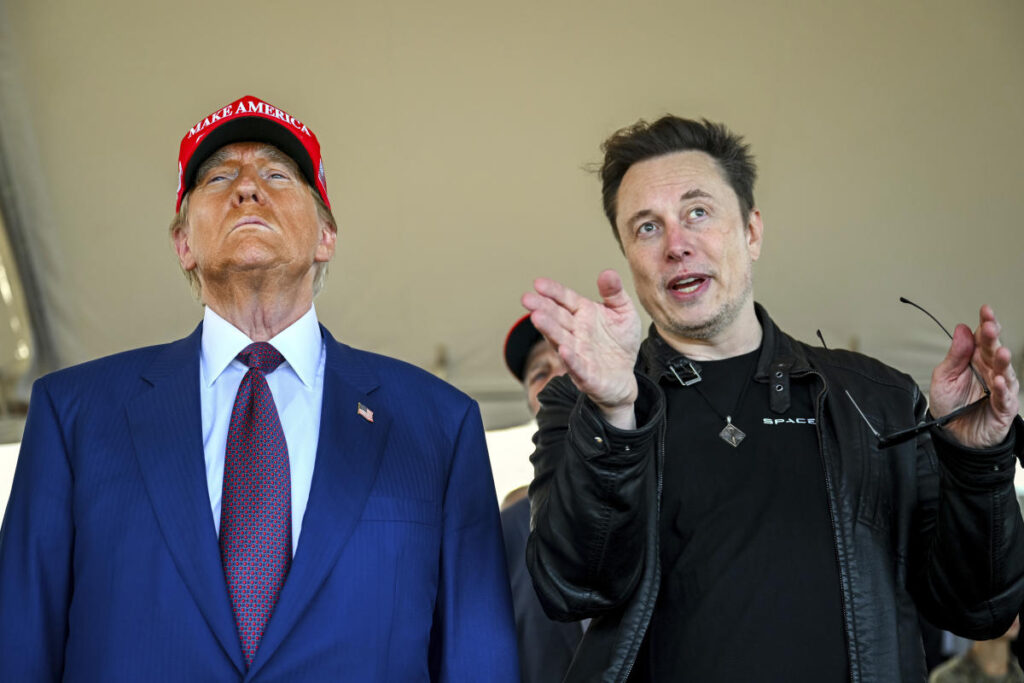In a dramatic turn of events, President-elect Donald Trump’s close ally Elon Musk emerged as a significant player in recent congressional debates, ultimately helping to derail a bipartisan funding proposal aimed at avoiding a government shutdown. Through a series of more than 100 posts shared on X (formerly known as Twitter), Musk publicly decried the proposed bill while promoting various falsehoods regarding its contents and implications. This maneuver marked a notable intersection of social media influence and political maneuvering, illustrating Musk’s burgeoning power in shaping governmental discourse. John Mark Hansen, a political science professor at the University of Chicago, observed that Trump had previously employed a similar strategy to obstruct legislative actions, making it evident that Musk’s increasing influence could place him at odds with traditional governance and political protocols.
Musk’s criticisms focused on specific aspects of the 1,547-page omnibus bill, including misleading claims about salary increases for members of Congress. While Musk asserted that the legislation would grant lawmakers a substantial 40% raise, an analysis from the Congressional Research Service indicated that the actual cap on potential salary adjustments would be a mere 3.8%. This increase would bring annual congressional salaries from approximately $174,000 to around $180,000. The adjustments that lead to pay raises for Congress are typically automatic unless blocked by law, a process that has often been neglected over the years. Despite Musk’s vocal opposition, his understanding of the legislative nuances seemed fundamentally flawed, raising questions about the accuracy and consequences of his online assertions.
In addition to labor-related misinformation, Musk shared another user’s erroneous claim regarding a $3 billion allocation for a new stadium for the NFL’s Washington Commanders, expressing strong opposition to taxpayer funding for such a project. However, the bill merely facilitated the transfer of land from the federal government to the District of Columbia, enabling the potential construction of a stadium. This legislation explicitly stated that the federal government would not bear any costs related to the land transfer, contradicting Musk’s assertion. District of Columbia Mayor Muriel Bowser publicly addressed this misinformation, expressing frustration and clarifying that no federal dollars were linked to the stadium endeavor, underscoring the importance of precise communication in discussions about public funding.
Musk’s posts also implied nefarious intentions behind federal funding for biocontainment research laboratories, suggesting that the bill was essentially financing “bioweapon labs.” However, factual examinations of the proposal revealed that these labs were intended for biomedical research aimed at combatting biological threats such as emerging infectious diseases, not for creating harmful agents. The misinformation perpetuated by Musk raised alarms among various congressional members, sparking discontent and calls for heightened accountability in the dissemination of information. Rep. Dan Crenshaw, a Republican from Texas, publicly urged Musk to rigorously verify his claims before influencing public perceptions, highlighting the challenges posed by influential figures in the digital age.
The culmination of Musk’s social media crusade contributed to the failure of a Trump-backed funding bill put forth in the House, ultimately rejected in a late-night vote. The revised bill, condensed to 116 pages, garnered significant opposition, with 174 votes against it compared to just 235 in favor, with numerous Republicans siding with Democrats. House Speaker Mike Johnson indicated that while Republicans had arrived at a consensus regarding a new spending agreement, further specifics were yet to be disclosed, suggesting a precarious and uncertain trajectory ahead for congressional negotiations.
Trump’s history of deliberately instigating government shutdowns further contextualizes this political landscape, as seen during his initial term when the longest shutdown in U.S. history occurred due to his machinations in 2018-2019. Following a contentious fight over COVID-19 relief in 2020, Trump demonstrated a willingness to disrupt negotiations for political leverage, showcasing a precedent that the current political climate must contend with. Musk’s active participation in recent legislative debates signifies a potential shift in how social media personalities can wield influence over governmental affairs, prompting critical questions regarding the impact of this dynamic on democracy, public discourse, and the future of policymaking. Together, these developments highlight the evolving relationship between technology and politics in contemporary America, underscoring the need for informed discourse amid a backdrop of misinformation and hyper-partisan conflict.

